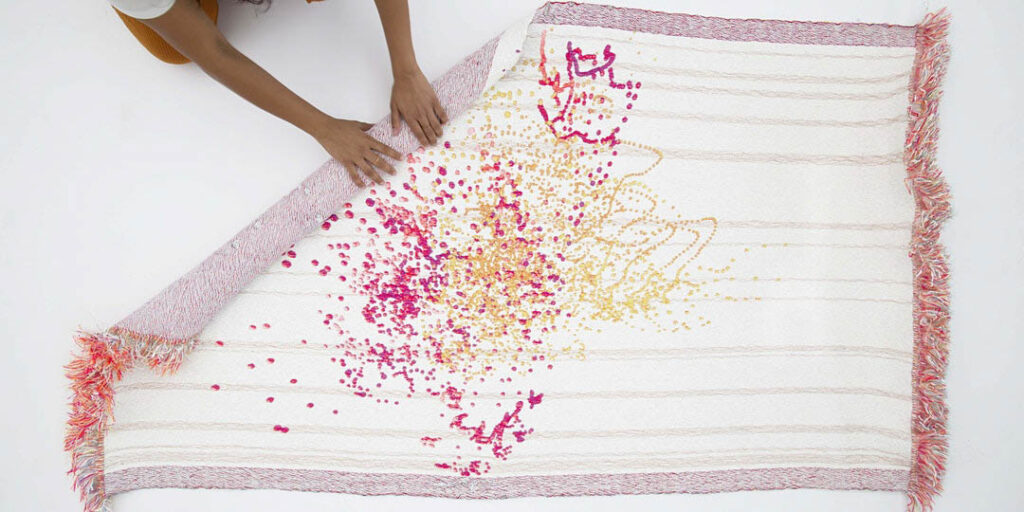Rosy Greenlees and Joseph Lo report on a series of seminars hosted by the World Crafts Council – International and the British Council reflecting the challenges and opportunities for craft in the twenty-first century.
The Covid-19 pandemic caused unprecedented global chaos. International borders closed, the global economy stalled, stock markets crashed, fairs and marketing events were cancelled and some industries, such as tourism, came to a grinding halt. Covid-19 touched the lives of everyone, some were more affected than others, but many in negative and challenging ways. In short, UN Deputy- Secretary-General Amina J Mohammed said, “We have moved to a recession that will be worse than the one we experienced in 2008…”. Worse, it was predicted that the impact of Covid-19 would be felt for years to come…
Globally, the crafts sector was also not spared by Covid-19. Artisans, designer-makers, community producers, craft-based businesses, enterprises and industries that have been closely linked with tourism, luxury and niche markets, and export-orientated transactions suddenly found their livelihoods threatened and craft practices endangered.
Many sought assistance from governments to tie over these challenging times but others have relied on their own ingenuity to respond to this pandemic; a commendable effort on self-reliance and the tenacity of the crafts sector.
Significantly, it was also important to look at this crisis positively, as a unique opportunity for productive contemplation. It was a period to dive deep into issues that would assist the crafts sector to review its mandate, formulate and chart pathways to mitigate against future crisis, not only the possible future occurrence of pandemics but other global threats such as climatic calamities, demographic evolutions, economic downturns and other unforeseen challenges.
However, quoting Johnny Corn – “We have a chance to do something extraordinary. As we head out of this pandemic we can change the world”. Exploring pathways to strengthen the resilience of the craft sector also presents an opportunity for the crafts sector to realign itself and contribute positively to the UN Sustainable Development Goals.
A series of webinars were presented in the last quarter of 2020, gathering experts, academics, craft advocates, members from various craft organisations and networks, grassroots practitioners, entrepreneurs, etc. to participate in meaningful and thoughtful dialogues. The objectives were to introduce new themes into craft practice so as to raise consciousness of these issues, generate ideas and adopt them into craft practices. It was also anticipated that the webinars would facilitate connections and formulate new networks between different craft programmes of the WCC International, the British Council and the wider craft organisations who participated in the events.





See WCC International workshop series 2021
About Rosy Greenlees
 Rosy Greenlees is the former Executive Director of the British Crafts Council. Retiring in 2022 she now works freelance and is a Board member of the British Ceramics Biennial, Creative and Cultural Skills a charity that promotes fair access to the cultural sector and the National Centre for Academic and Cultural Exchange. Rosy was President of World Crafts Council International 2016-2019 and is now an Honorary Member.
Rosy Greenlees is the former Executive Director of the British Crafts Council. Retiring in 2022 she now works freelance and is a Board member of the British Ceramics Biennial, Creative and Cultural Skills a charity that promotes fair access to the cultural sector and the National Centre for Academic and Cultural Exchange. Rosy was President of World Crafts Council International 2016-2019 and is now an Honorary Member.
About Joseph Lo
 Dr Joseph Lo is an independent researcher and consultant having worked with numerous UN agencies, international and national organisations such as the British Council, the British Museum, Smithsonian Institution and World Crafts Council. His work focuses on culture-based creative industry, data analysis in support of policy recommendations, project management and evaluation. Recently, together with the Royal Textile Academy of Bhutan, he completed a series of national surveys to gain insights to the textile industry in Bhutan. The reports are available here.
Dr Joseph Lo is an independent researcher and consultant having worked with numerous UN agencies, international and national organisations such as the British Council, the British Museum, Smithsonian Institution and World Crafts Council. His work focuses on culture-based creative industry, data analysis in support of policy recommendations, project management and evaluation. Recently, together with the Royal Textile Academy of Bhutan, he completed a series of national surveys to gain insights to the textile industry in Bhutan. The reports are available here.



Comments
Great job in all directions